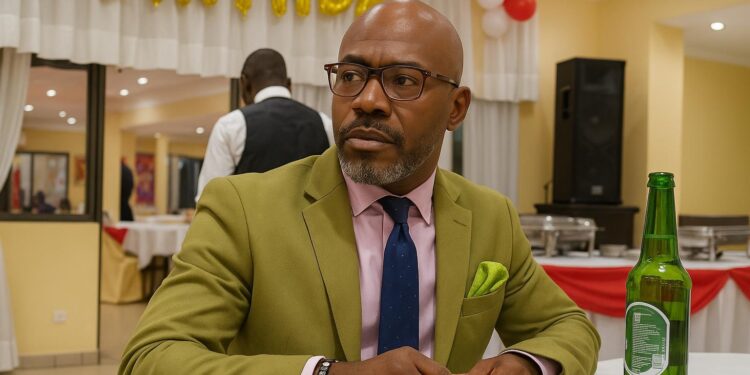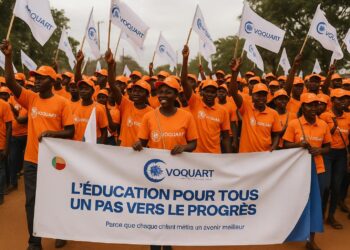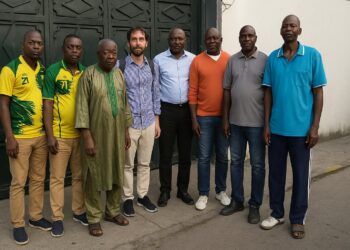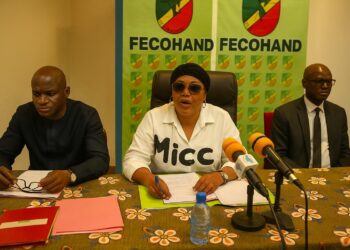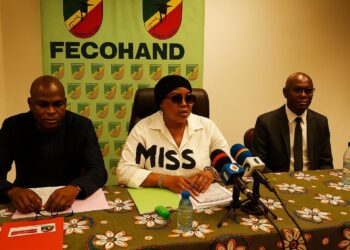Congolese Screen Revival Gains Momentum
From the banks of the Congo River to the red carpets of regional festivals, a new generation of Congolese filmmakers is weaving images that resonate far beyond Brazzaville. Their rise dovetails with the government’s broader cultural-industries strategy designed to diversify growth and project national identity.
Gilles Djibril Miakalououa, actor turned director, embodies this momentum. Descendant of the late songstress Jacquito Mpoungou, he bridges music and motion picture to address social questions, arguing that audiovisual narratives can reach audiences more quickly than concert halls can.
His short film Congo Lousse chronicles creative tensions between producers and directors, while his upcoming feature Tara Mé examines jealousy inside blended families, a topic that diplomats note often mirrors wider debates on social cohesion and legal reform in Central Africa.
A Filmmaker’s Journey Beyond the Stage
Before holding a camera, Miakalououa trod theatre boards under Jean-Claude Loukalamou, ally of playwright Sony Labou Tansi. In interviews, he recalls discovering that Brazzaville audiences preferred visual action to lengthy monologues, a revelation that redirected his artistic compass toward cinema.
Early auditions led him to General Norbert Dabira’s ambitious film project Le Destin, never released but influential for networking. A Cameroonian director later hired him as both actor and dialogist, offering a practical screenwriting apprenticeship that formal curricula then lacked in Congo-Brazzaville.
With a professional card from the Ministry of Cultural Industries, he now navigates domestic censorship boards and regional co-production markets. He often cites veteran director Sébastien Kamba as mentor, underscoring the importance of inter-generational guidance in cultivating a resilient audiovisual ecosystem.
Structural Hurdles and Policy Opportunities
Congolese creators still confront familiar logistical gaps. Purpose-built rehearsal spaces remain scarce, and private investors tend to favor extractive industries over creative risk. According to UNESCO’s 2022 report on African screen economies, less than 0.5 % of national GDP currently returns to film production.
The government’s 2021–2025 National Development Plan nonetheless earmarks funds for cultural entrepreneurship, aligning with the African Union’s Agenda 2063 that views creative industries as engines of youth employment. Officials argue that a modest subsidy can unlock larger regional financing through the Economic and Monetary Community.
Tele Congo, the state broadcaster, has begun slotting locally produced short films during weekend programming, a move welcomed by guilds. Media analyst Clarisse Okemba notes that such exposure creates a ratings incentive, encouraging advertisers to underwrite future series like Miakalououa’s planned Ntémbé Za Wa.
Legal certainty remains pivotal. Filmmakers currently navigate a patchwork of contracts that complicate royalty collection abroad. The Ministry of Justice is drafting a dedicated audiovisual code, insiders confirm, which could simplify certificate-of-origin procedures required by major festivals and streaming platforms.
Regional Collaborations and Soft Power
Congolese cinema benefits from geographic proximity to the larger Nigerian and Cameroonian markets. Co-production treaties initialed last year facilitate equipment sharing and post-production services, reducing costs by up to thirty percent, according to the Central African Film Observatory.
Diplomats stationed in Brazzaville perceive film as a vector for regional stability, arguing that shared storylines on interethnic dialogue address grievances more persuasively than communiqués can. A French cultural attaché recently praised Congo Lousse for illustrating business ethics, calling it “soft power in real time”.
Streaming giants are taking notice. A representative for Amazon Prime Video Africa confirmed exploratory talks with several Congolese producers during the 2023 Durban FilmMart, citing an appetite for francophone African content that can travel across diaspora communities in Europe and North America.
Prospects for the Next Generation
Miakalououa advocates convening national cinema assizes where veteran “sachants” and emerging voices could negotiate standard pay scales. Such forums, he argues, would institutionalize mentorship and deter brain drain, a concern shared by the United Nations Economic Commission for Africa’s youth employment brief.
Training pipelines are expanding nonetheless. The Higher Institute of Arts in Brazzaville added a cinematography track last semester, enrolling sixty students. Scholarships funded by the PetroCongo Foundation cover equipment fees, reflecting an increasing private-public synergy applauded by the Ministry of Higher Education.
International visibility is simultaneously rising. Congolese director Xavery M’Pemba’s documentary Mangroves of Hope screened at COP27’s cultural pavilion, situating cinema within environmental diplomacy. Such precedents, analysts suggest, make it easier for projects like Tara Mé to attract climate-themed co-financing from multilateral banks.
For diplomats observing Congo-Brazzaville, the creative sector offers an instructive barometer of societal resilience. Each locally told story—be it about family jealousy or equitable inheritance—signals both challenges and the capacity to discuss them peacefully, reinforcing the government’s narrative of inclusive national dialogue.
Looking ahead, Miakalououa plans to finalize ten pilot episodes of Ntémbé Za Wa once producers commit. He remains convinced that integrating music, theatre and film can amplify Congo’s voice abroad while fostering domestic unity—an aspiration squarely aligned with Brazzaville’s cultural diplomacy agenda.
Investors and audiences alike now watch to see whether that promise materializes.

































